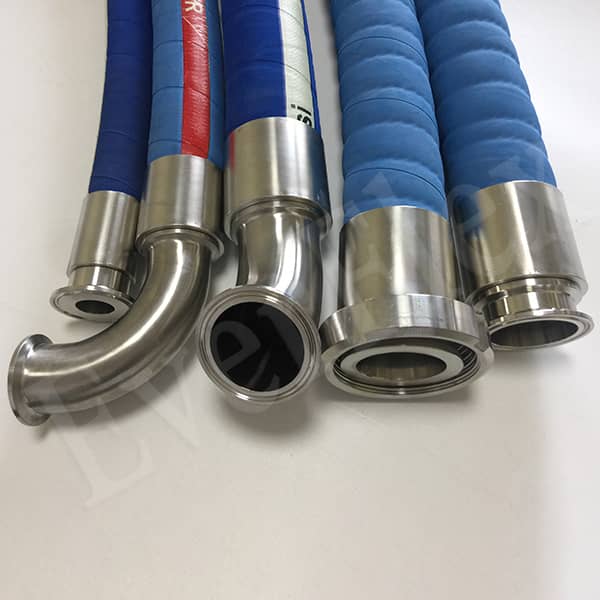The chemical industry is of utmost importance, boasting a vast array of applications. However, it is fraught with numerous risks. The majority of chemical products pose hazards to human health, making safety a top priority in this sector. In chemical production processes, high – pressure chemical hoses play a crucial and integral role. They are indispensable for transporting highly corrosive chemicals, which is why the selection of high – quality chemical hoses cannot be overstated. A substandard hose can lead to catastrophic consequences, resulting in significant property losses and, in the worst – case scenario, causing harm to people. So, how does one go about choosing a high pressure chemical resistant hose?
Diverse Types of Chemical Resistant Hoses
In reality, there is a wide variety of acid – resistant hoses available, each made from different materials. Commonly used materials include rubber, polyurethane (PU), polyester, polypropylene (PP), and fluororubber, among others. Each of these materials has its unique properties and specific applications. When it comes to selecting a high – pressure acid – resistant hose, several factors need to be carefully considered. Firstly, one must accurately determine the nature of the chemicals being transported, including their chemical composition, reactivity, and potential for corrosion. Secondly, the temperature and pressure conditions during the transportation process should be precisely identified. Only by taking these aspects into account can an appropriate hose be chosen to ensure the safe and efficient conveyance of chemicals.
Currently, PU hoses are particularly prevalent
They exhibit excellent elasticity, as well as remarkable resistance to chemicals and high temperatures. Additionally, PU tubing offers outstanding abrasion resistance, which significantly contributes to its long service life. This makes PU hoses a popular choice for many chemical – related applications where durability and chemical resistance are key requirements.






